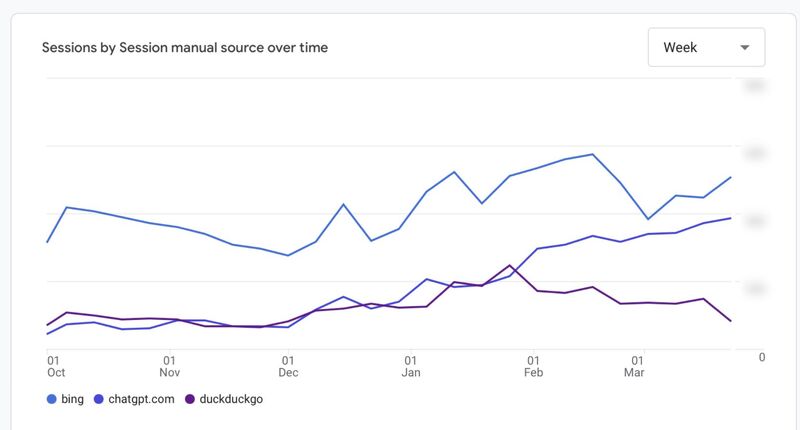📋Table of Contents

📈The Current State of Search: January 2024 Data
According to recent data from Statcounter, Google's global search market share fell below 90% for the first time since 2015, marking a significant shift in the search landscape. The numbers show Google at:
This trend is particularly notable in the U.S. market, where Google's search share peaked at 90.37% in November but fell to 87.39% in December 2024. For more analysis on Google's market position, read our detailed report on The Shifting Search Landscape: Google's Market Share Faces AI Challenge.
"As the old saying goes, one's a dot, two's a line, and three's a trend. Clearly, we're seeing a trend here with Google losing search market share... Google has been under attack for nearly two years over the growing unhelpfulness of its search results despite dominating thanks to its illegal monopoly status with a commanding and consistent 90-92+% share for nearly a decade."- Danny Goodwin, Search Engine Land
🔍Our Clickstream Analysis Findings
Estimated Google's effective search market share: ~91%
(Calculated as 92% - 17% × 30% × 20%)
"This is a very complex question to answer. But, if you're willing to handle some messy data processes, this is the closest I'm able to get to something reasonable. Visit data comparisons come from SimilarWeb. The number of 'searches' (or prompts, in the case of LLMs) comes from Datos."- Rand Fishkin, SparkToro Research
🚀The Rise of AI Search: A Case Study
It's worth noting that this analysis only includes mobile and web browser traffic, not in-app activity, which could overcount LLMs since they are more likely than social or search platforms to have mobile app activity. The data reveals fascinating patterns in user behavior as AI-powered search tools gain adoption.
Data Limitations
- •Analysis limited to mobile and web browser traffic
- •In-app activity not included in measurements
- •Potential overcount of LLM usage due to mobile app preferences
🎯Understanding the Search Evolution
The search landscape is rapidly evolving, with AI-powered tools like ChatGPT gaining significant traction. While Google maintains its dominant position, the emergence of alternative search behaviors signals a fundamental shift in how users discover and interact with information online.